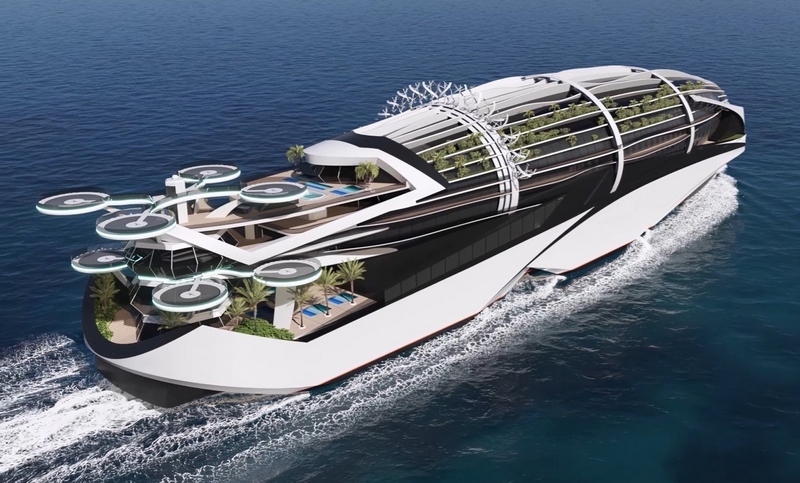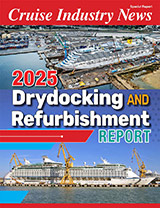The Meyer Group shared a cruise ship concept that shows what the future of cruising could look like in the year 2100, according to a press release.
Inspired by the rock penguin, the Meyer Group developed the “Reverse” concept – a concept that shows what a cruise ship could look like in the year 2100. The concept implies that a ship is equipped with a closed glass facade and gardening areas on the outside and central public areas from the inside. The concept means that a cabin structure is detached from the outer hull.
“The ship is based on global megatrends and is one – but not the only – logical response to them,” said Tim Krug, head of concept development group at Meyer Group.
“For example, we have only provided for small restaurant areas that serve more as social meeting places because we imagine that a large part of the nutrients will be consumed in a concentrated form like pills. From today’s point of view, we sometimes come up with extreme approaches, but it is equally important to think them through and develop answers from them.”
The energy concept onboard the futuristic ship also relies on innovation and uses wave energy through horizontal wings on the hull, solar and fuel cells as well as wind energy to manage without fossil fuels.
In 2023, Meyer Werft will deliver the Silver Nova, a new cruise ship for Silversea Cruises which will set new standards in technology and design. Additionally, two innovative cruise ships are currently under construction at Meyer Turku while the Finnish shipyard of the Meyer Group will deliver the Icon of the Seas, the largest cruise ship belonging to Royal Caribbean International later this year.
Additionally, days ago, the construction of the Mein Schiff 7, the newest ship for TUI Cruises, started at Meyer Turku. The ship will be among the first to be ready for methanol and green methanol in the future, making its operation almost climate neutral, the yard said.
The Meyer Group and fuel cell manufacturer Freudenberg have spent years researching the fuel cell system expected to provide part of the energy needs on board. Both companies anticipate that all the components of the fuel cell system will pass the rigorous endurance tests at extreme temperatures and get the classification societies’ certification tests for safe use on ships.
The goal of the research project is to develop a maritime fuel cell system large enough to power Royal Caribbean Group’s Nova-class ships. When completed, the fuel cell system is expected to meet a ship’s entire hotel load.




